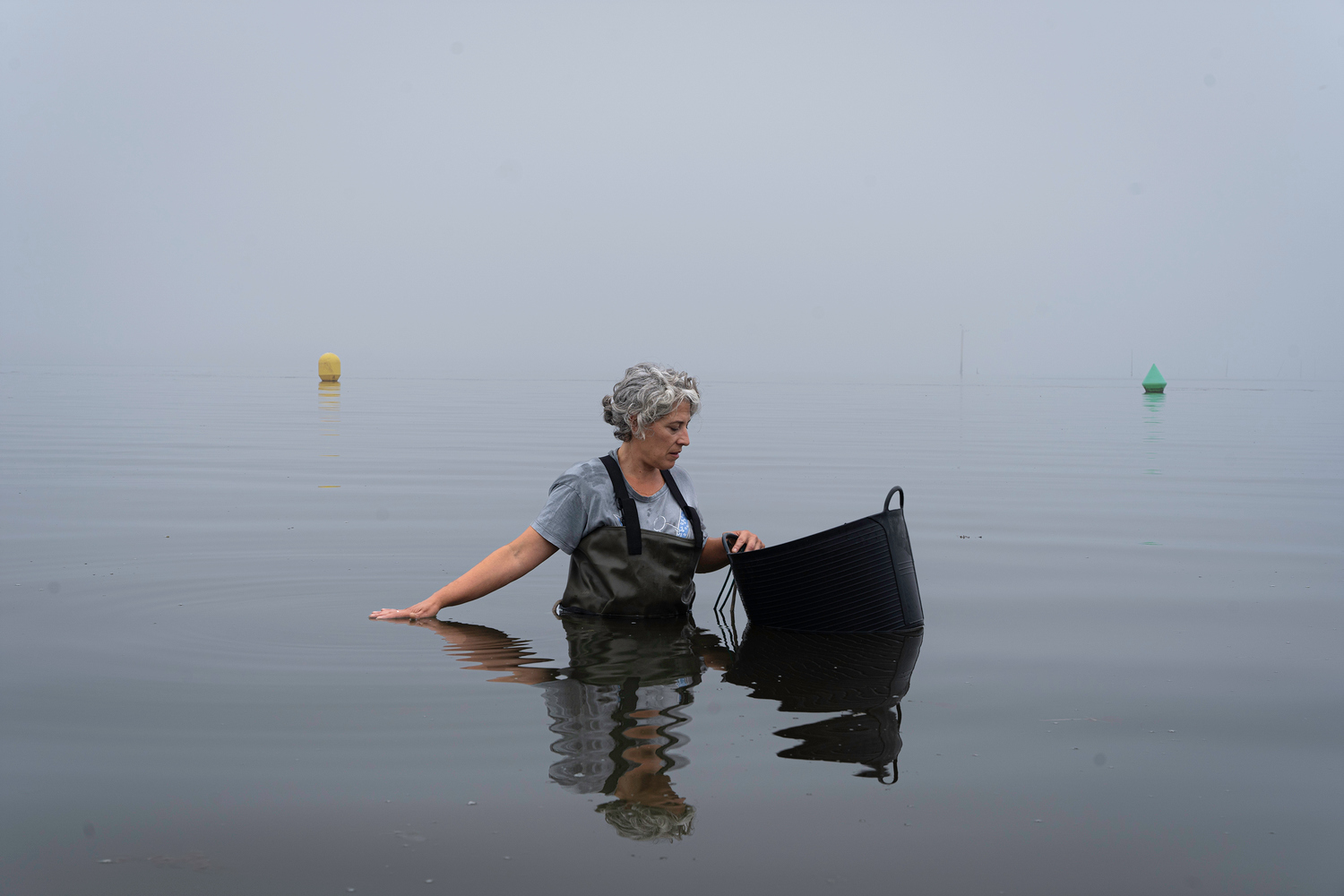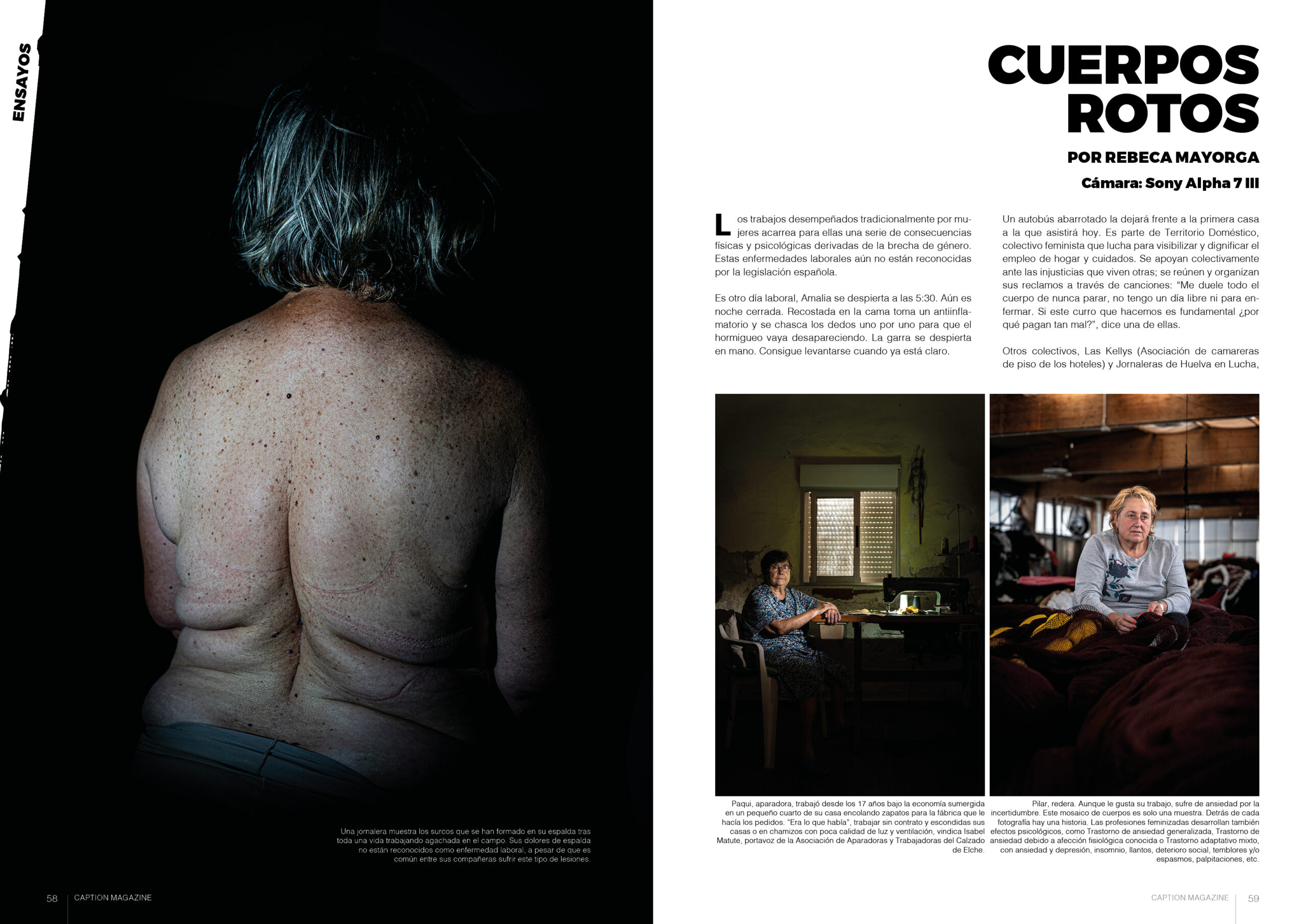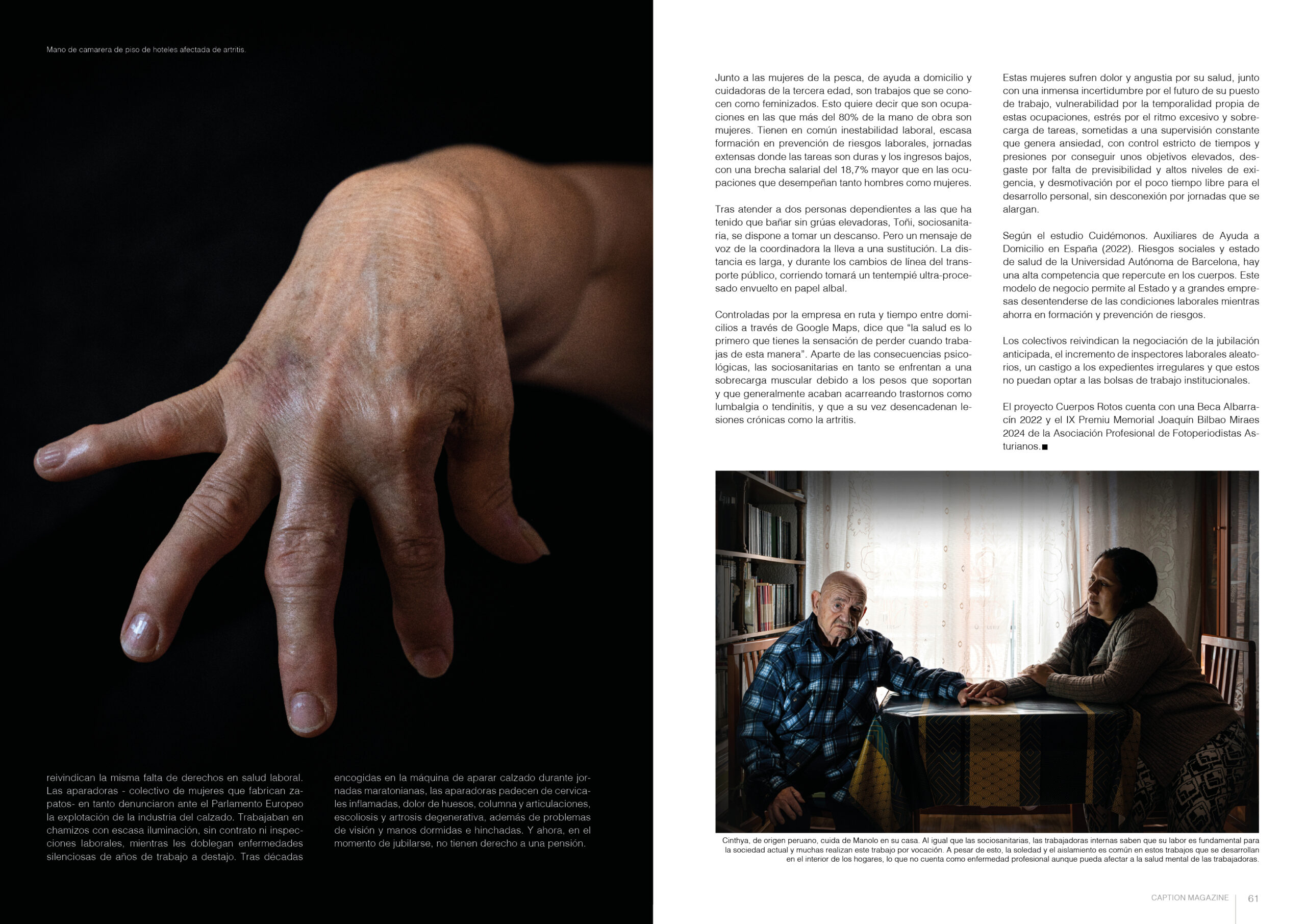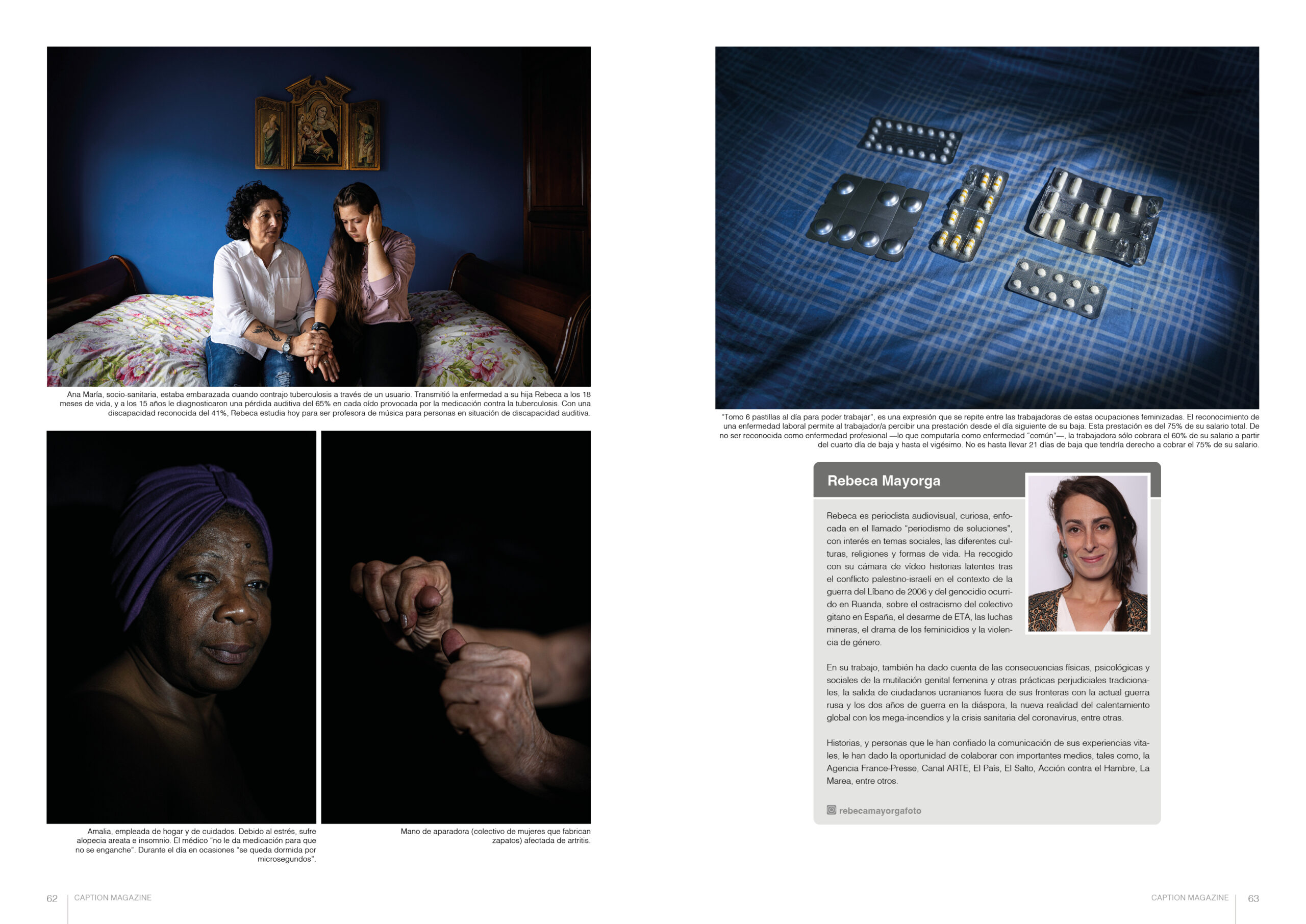Broken bodies
By Rebeca Mayorga
Camera: Sony Alpha 7 III
The jobs traditionally performed by women have a series of physical and psychological consequences for them derived from the gender gap. These occupational diseases are not yet recognised by Spanish legislation.
It’s another working day, Amalia wakes up at 5:30. It is still dark night. Lying in bed, she takes an anti-inflammatory and snaps her fingers one by one so that the tingling disappears. The claw awakens in the hand. He manages to get up when it is already clear.
A crowded bus will drop her off in front of the first house she will attend today. She is part of Territorio Doméstico, a feminist collective that fights to make visible and dignify domestic and care work. They support each other collectively in the face of the injustices experienced by others; they meet and organize their demands through songs: “My whole body hurts from never stopping, I don’t have a day off even to get sick. If this work we do is fundamental, why do they pay so badly?” says one of them.
Other groups, Las Kellys (Association of Hotel Housekeepers) and Jornaleras de Huelva en Lucha, claim the same lack of rights in occupational health. The sideboards – a group of women who manufacture shoes – meanwhile denounced before the European Parliament the exploitation of the footwear industry. They worked in shacks with poor lighting, without a contract or labor inspections, while they were overcome by silent diseases from years of piecework. After decades of shrunken in the shoe machine during marathon days, the dressers suffer from swollen cervical spine, bone, spine and joint pain, scoliosis and degenerative osteoarthritis, as well as vision problems and sleepy and swollen hands. And now, at the time of retirement, they are not entitled to a pension.
Together with women in fishing, home help and caregivers for the elderly, these are jobs that are known as feminized. This means that they are occupations in which more than 80% of the workforce are women. They have in common job instability, little training in occupational risk prevention, long hours where tasks are hard and incomes are low, with a wage gap of 18.7% greater than in occupations carried out by both men and women.
After attending to two dependent people whom she has had to bathe without lifting cranes, Toñi, a social health worker, is ready to take a break. But a voice message from the coordinator leads to a substitution. The distance is long, and during public transport line changes, running will have an ultra-processed snack wrapped in white paper.
Controlled by the company on route and time between homes through Google Maps, she says that “health is the first thing you have the feeling of losing when you work in this way.” Apart from the psychological consequences, social health workers face muscle overload due to the weights they bear and that generally end up leading to disorders such as low back pain or tendonitis, and which in turn trigger chronic injuries such as arthritis.
These women suffer pain and anguish for their health, along with immense uncertainty about the future of their job, vulnerability due to the temporary nature of these occupations, stress due to the excessive pace and overload of tasks, subjected to constant supervision that generates anxiety, with strict control of times and pressures to achieve high objectives. Wear and tear due to lack of predictability and high levels of demand, and demotivation due to the little free time for personal development, without disconnection due to longer working days.
According to the study Let’s take care of ourselves. Home Help Assistants in Spain (2022). Social risks and health status of the Autonomous University of Barcelona, there is a high level of competition that has an impact on bodies. This business model allows the State and large companies to disregard working conditions while saving on training and risk prevention.
The groups demand the negotiation of early retirement, the increase of random labor inspectors, a punishment for irregular files and that they cannot opt for institutional job exchanges.
The Broken Bodies project has an Albarracín 2022 Scholarship and the IX Joaquín Bilbao Miraes Memorial Award 2024 from the Professional Association of Asturian Photojournalists.
About the author:
Rebeca is a curious audiovisual journalist, focused on the so-called “solutions journalism”, with an interest in social issues, different cultures, religions and ways of life. With his video camera, he has collected latent stories after the Palestinian-Israeli conflict in the context of the 2006 Lebanon war and the genocide in Rwanda, about the ostracism of the Roma community in Spain, the disarmament of ETA, the mining struggles, the drama of femicides and gender violence.
In her work, she has also given an account of the physical, psychological and social consequences of female genital mutilation and other traditional harmful practices, the departure of Ukrainian citizens from their borders with the current Russian war and the two years of war in the diaspora, the new reality of global warming with mega-fires and the coronavirus health crisis, among others.
Stories, and people who have entrusted him with the communication of their life experiences, have given him the opportunity to collaborate with important media, such as Agence France-Presse, Canal ARTE, El País, El Salto, Action Against Hunger, La Marea, among others.
Links:







